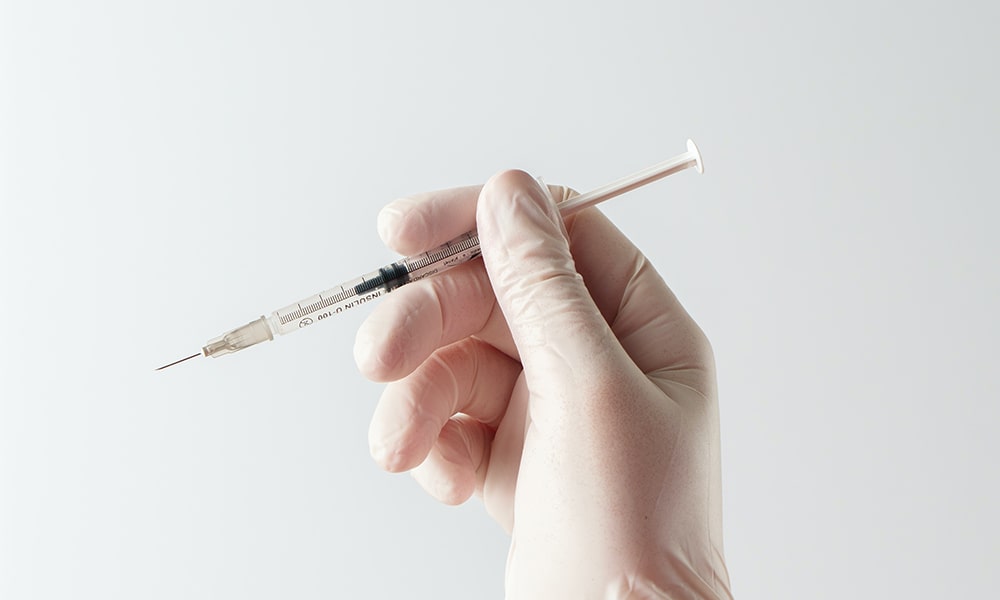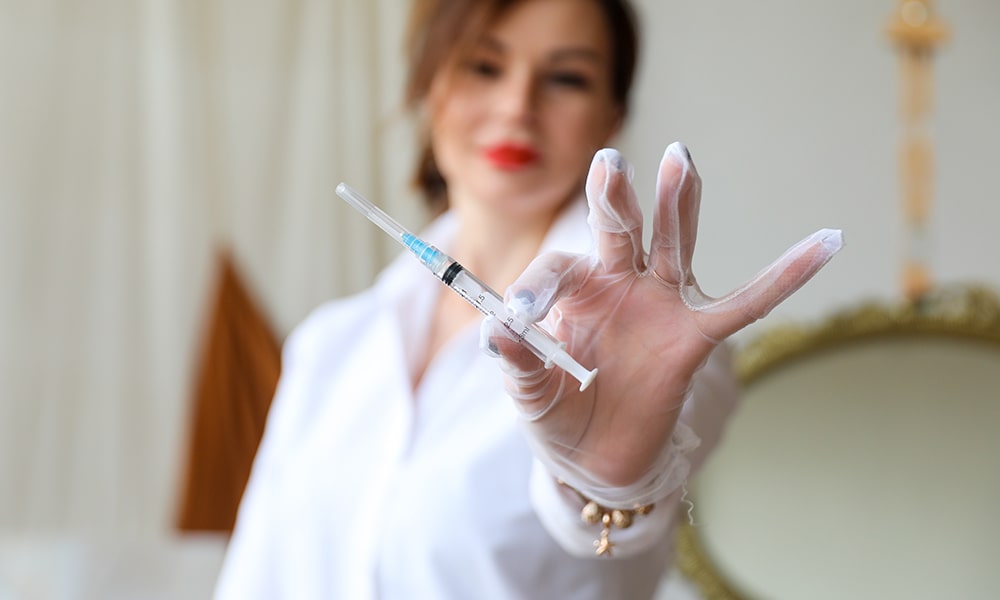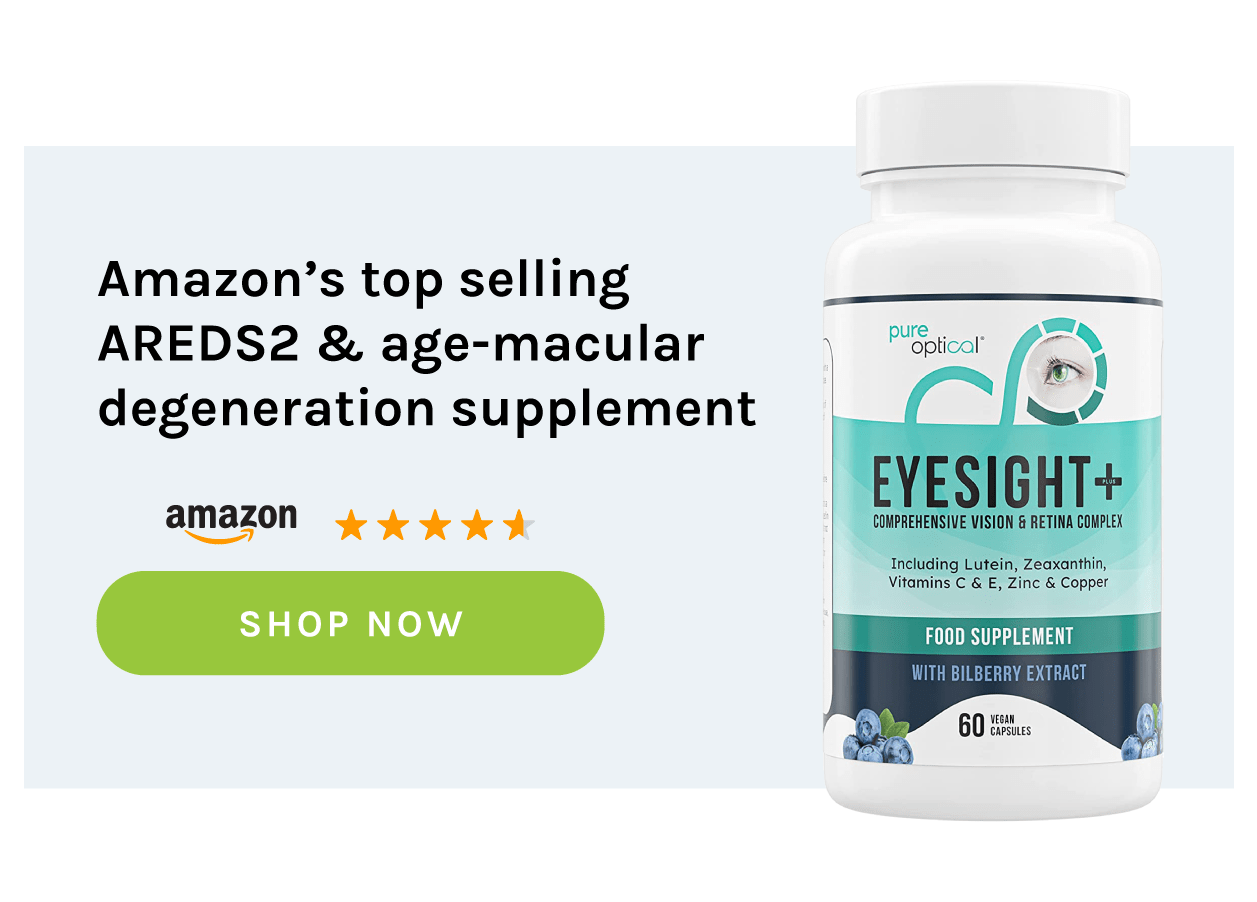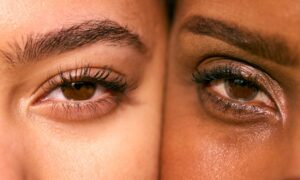Macular degeneration, specifically age-related macular degeneration (AMD), is the leading cause of sight loss in the UK.
There are two primary forms of AMD: dry and wet. While the dry form is more common and progresses slowly, the wet form is more aggressive and can lead to rapid sight loss if left untreated.
One of the primary treatments for wet AMD is regular eye injections. In this article, we will explore what happens if these injections are halted.

Why do some people take eye injections for wet AMD?
To fully comprehend the potential effects of discontinuing eye injections for macular degeneration, it’s crucial first to understand the condition itself and the rationale behind the treatment.
Wet AMD: Wet AMD occurs when abnormal blood vessels grow underneath the retina, leading to leakage of fluid or blood. This leakage distorts vision, causing blind spots and, in severe cases, total sight loss.
Anti-VEGF injections: One of the most effective treatments for wet AMD is injections of anti-VEGF drugs. These drugs, injected directly into the eye, help to reduce the growth of unwanted blood vessels and decrease fluid leakage. This treatment not only halts the progress of the disease but, in some cases, can also lead to improved vision.
The implications of discontinuing treatment
Halting any medical treatment is bound to have consequences, and with AMD, the results can be particularly distressing:
Return of symptoms: One of the most immediate effects of stopping the injections is the potential return of AMD symptoms, which could lead to further deterioration in vision.
Rapid progression: Without the counteraction of anti-VEGF drugs, the disease may progress more rapidly than before, leading to faster sight loss.
Irreversible damage: Over time, the continued growth and leakage from these abnormal blood vessels can cause irreversible damage to the retina and a permanent decline in central vision.
The emotional and practical implications of discontinuing treatment
Stopping treatments can have more than just physical effects; there can also be emotional and practical repercussions:
Psychological impact: Sight is fundamental to our daily lives, and any degradation in vision can have profound psychological consequences. Anxiety, depression, and feelings of isolation are commonly reported among individuals with deteriorating vision, especially if they perceive that the decline could have been preventable.
Daily life activities: Reduced vision can hinder daily life activities, such as reading, driving, recognising faces, and navigating unfamiliar areas. This can lead to a decreased sense of independence and reliance on caregivers or family members.

The broader financial implications
Stopping eye injections can also have financial implications:
Increased care costs: As vision deteriorates, there might be a need for increased support and care, leading to higher personal and societal care costs.
Loss of employment: Individuals whose work relies heavily on their vision might find it challenging to maintain their current employment status. The financial strain from a potential job loss can be substantial.
Other preventative measures
Eye supplements
While these supplements might play a role in supporting eye health and potentially slowing down the progression of AMD, they are not a replacement for medical treatments like anti-VEGF injections. They might, however, be beneficial as a complementary therapy or for those with dry AMD, which doesn’t yet have a direct treatment.
Eyesight Plus AREDS 2 Vitamins for Eyes: This eye supplement is based on the AREDS2 study – a significant research trial that identified a combination of vitamins and minerals that can reduce the risk of progression in those with intermediate or late-stage AMD. The product contains a mix of antioxidants like vitamin C, vitamin E, and zinc, along with other beneficial ingredients like lutein and zeaxanthin.
Smoking cessation
Smoking is a significant risk factor for AMD. Quitting smoking can reduce the risk of the condition’s onset and progression.
Balanced diet
A diet rich in green leafy vegetables, fish, and whole grains can provide nutrients beneficial for eye health.

UV protection
Protecting the eyes from harmful UV rays by wearing sunglasses can also play a role in preventing further damage.
Always speak to a professional before ending medical treatment
Age-related macular degeneration is a complex condition with multiple factors influencing its progression. While anti-VEGF injections have proven to be an effective treatment for many, the decision to continue or halt treatment should be made in close consultation with a medical professional, taking into account the potential risks and benefits. Dietary supplements and lifestyle changes can provide additional support, but they cannot replace the therapeutic effects of medical treatments. As with any health decision, it’s essential to be well-informed and proactive in seeking the best care and advice.
Frequently asked questions
What are eye injections for macular degeneration?
Eye injections for macular degeneration typically involve anti-VEGF (Vascular Endothelial Growth Factor) medications. These injections are used to treat wet AMD by inhibiting the growth of abnormal blood vessels in the retina, which can leak fluid and cause vision loss.
Why might someone stop taking these injections?
Patients might consider stopping injections for various reasons, including the stress and discomfort associated with ongoing treatments, financial concerns, perceived lack of effectiveness, or side effects. However, any decision to stop should be made in consultation with an eye care professional.
Can the effects of stopping injections be reversed?
If injections are resumed after a brief hiatus, it may be possible to stabilize vision or regain some of the lost vision, depending on the extent of the disease’s progression and any damage incurred during the break. However, any permanent damage to the retina or macula cannot be reversed.
Is it ever safe to stop eye injections for AMD?
In some cases, under the close supervision of an eye care professional, it might be appropriate to extend the interval between injections or monitor the condition without treatment, especially if the AMD shows signs of stabilization. However, this requires careful monitoring through regular eye exams.
What should I do if I’m considering stopping my injections?
If you’re considering stopping your injections, it’s crucial to:
- Consult Your Doctor: Discuss your concerns and reasons with your eye care professional. There may be alternatives or adjustments to your treatment plan that could address your concerns.
- Understand the Risks: Be fully informed about the potential consequences of stopping treatment.
- Regular Monitoring: Arrange for regular eye exams to monitor any changes in your condition if you decide to pause treatment.
Are there any alternatives to eye injections for AMD?
While anti-VEGF injections are a common treatment for wet AMD, alternatives may include laser therapy or photodynamic therapy, depending on the specific characteristics of your AMD. Research is also ongoing into new treatments, including longer-lasting drugs and implantable devices.
Can lifestyle changes or supplements replace eye injections for AMD?
While a healthy lifestyle and certain dietary supplements recommended by the AREDS2 study can help reduce the risk of AMD progression, they cannot replace the need for injections in treating wet AMD. These measures are complementary and should not be seen as substitutes for medical treatment.
How often should I have my eyes checked if I stop injections?
Patients who decide to stop injections, under the guidance of their eye care professional, should have their eyes checked regularly, as often as recommended by their doctor. This frequency will depend on the individual’s condition and the doctor’s assessment.





